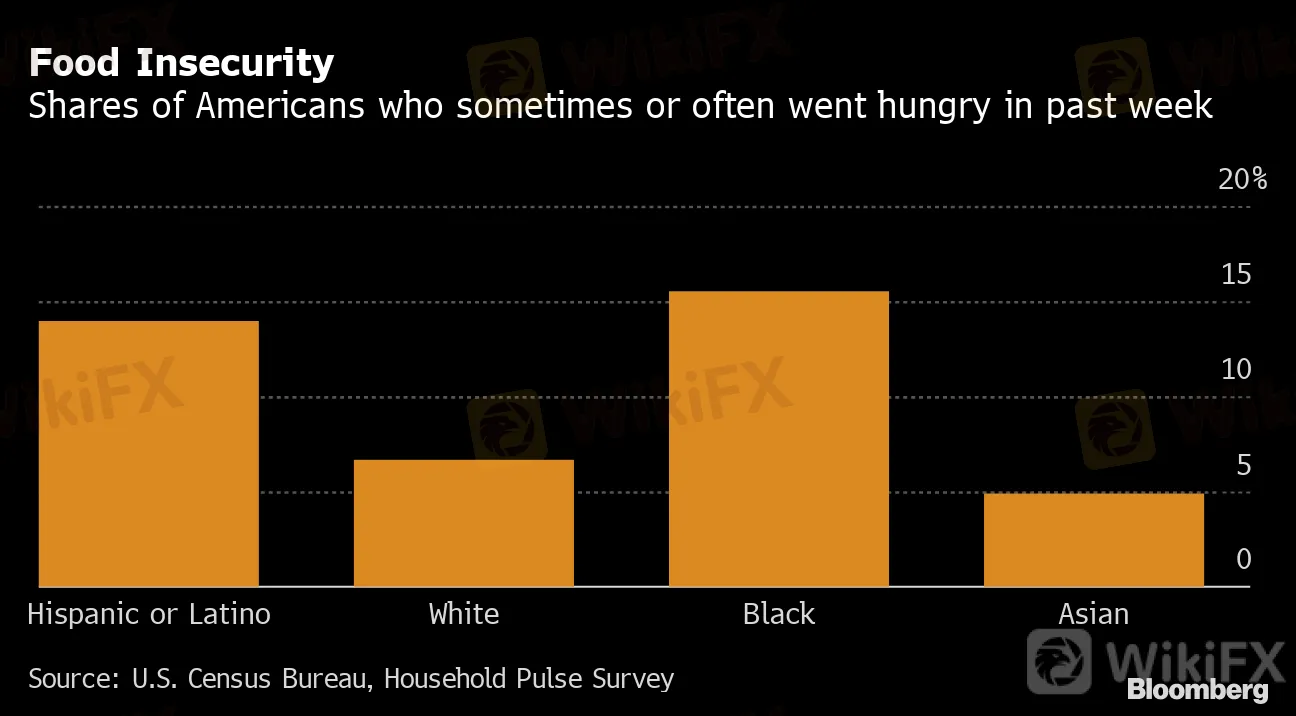简体中文
繁體中文
English
Pусский
日本語
ภาษาไทย
Tiếng Việt
Bahasa Indonesia
Español
हिन्दी
Filippiiniläinen
Français
Deutsch
Português
Türkçe
한국어
العربية
Economic Pain Persists for Millions in U.S. as Aid Talks Drag On
Abstract:More than 34 million U.S. adults live in households that find it very difficult to pay for their usual expenses, according to government data that offer the latest evidence of how low-income and minority Americans are facing intense economic insecurity as the pandemic wears on.
More than 34 million U.S. adults live in households that find it very difficult to pay for their usual expenses, according to government data that offer the latest evidence of how low-income and minority Americans are facing intense economic insecurity as the pandemic wears on.
{4}
Households with about 31% of Americans 18 and over said covering usual expenses had been “somewhat” or “very” difficult in the last seven days, according to the Census Bureaus Household Pulse Survey conducted from Sept. 30 to Oct. 12. That was a slight increase from responses collected during the Sept. 16-28 period.
{4}
As stimulus negotiations dragged on in Washington, many minority households faced mounting economic insecurity. The share of Black, Hispanic and Latino Americans who said they sometimes or often didn‘t have enough to eat was close to 15%, more than double the rates for White and Asian respondents, while one-third had little or no confidence they could pay next month’s rent.
Food Insecurity
Shares of Americans who sometimes or often went hungry in past week
Source: U.S. Census Bureau, Household Pulse Survey

The newest signs of suffering for millions of Americans came as negotiations over providing an additional coronavirus stimulus package wore on and appeared less likely to be passed by both chambers of Congress before the Nov. 3 election.
Meanwhile, Federal Reserve officials have increasingly called for new fiscal support for the economy. “The recovery remains highly uncertain and highly uneven,” Fed Governor Lael Brainard said in a speech Wednesday.
The Census survey also found that about 27% of prime-age Americans, or those age 25 to 54, expected someone in their household would lose employment income in the next four weeks, little changed compared with the prior survey.
Disclaimer:
The views in this article only represent the author's personal views, and do not constitute investment advice on this platform. This platform does not guarantee the accuracy, completeness and timeliness of the information in the article, and will not be liable for any loss caused by the use of or reliance on the information in the article.
WikiFX Broker
Latest News
Revolut X Expands Crypto Exchange Across Europe, Targeting Pro Traders
Broker Review: Is Exnova Legit?
Capital.com Shifts to Regional Leadership as CEO Kypros Zoumidou Steps Down
Crypto Scammer Pleads Guilty in $73 Million “Pig Butchering” Fraud
CWG Markets Got FSCA, South Africa Authorisation
Amazon launches Temu and Shein rival with \crazy low\ prices
CySEC Warns Against Unauthorized Investment Firms in Cyprus
Why Even the Highly Educated Fall Victim to Investment Scams?
Warning Against Globalmarketsbull & Cryptclubmarket
FBI Raids Polymarket CEO’s Home Amid 2024 Election Bet Probe
Currency Calculator


